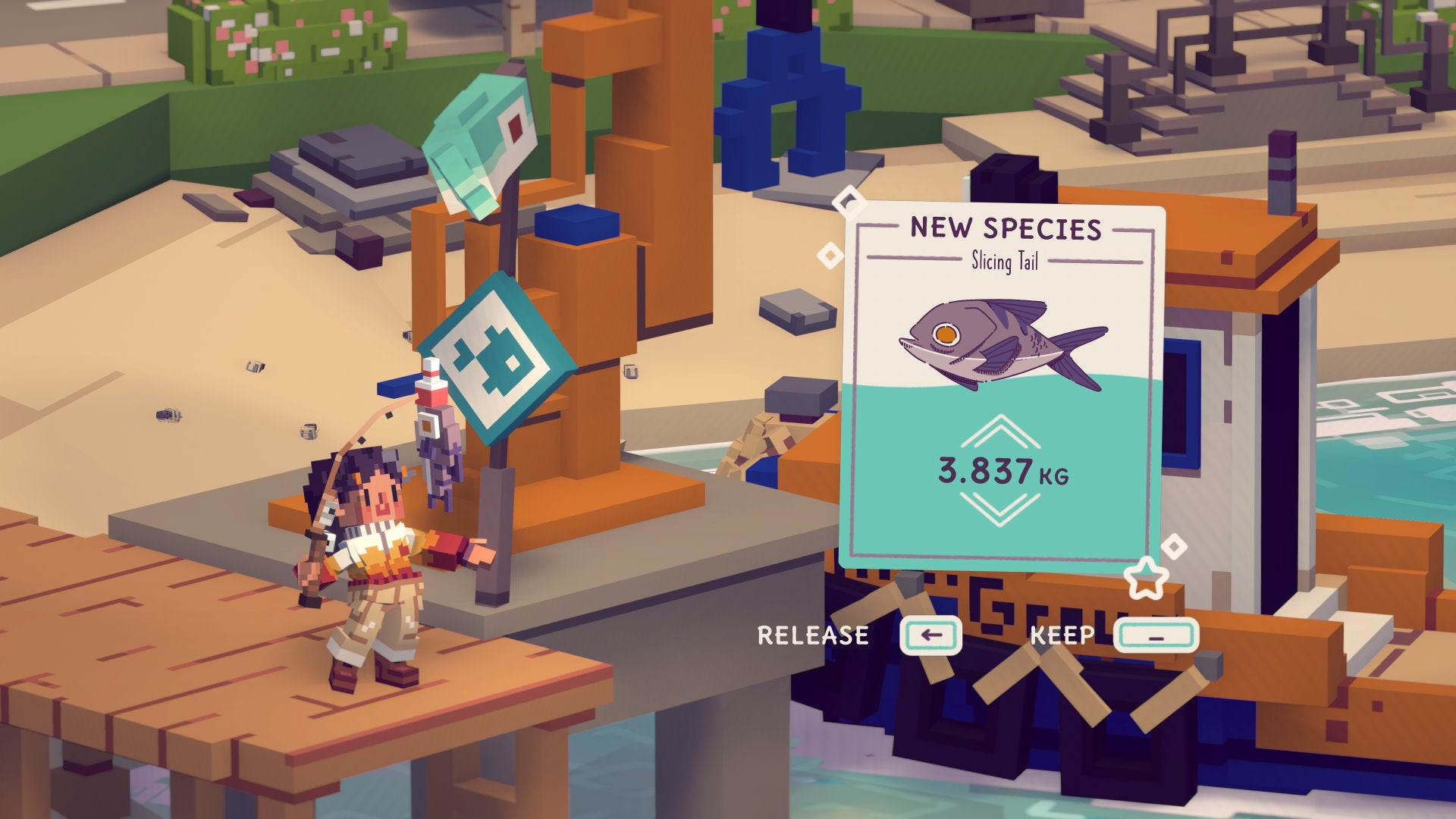Products You May Like
Everything in the seaside town of Moonglow Bay has seen better days. That includes you, a middle-aged accountant who’s moved out of the big city for a fresh start. But things never go quite to plan, do they? The moment-to-moment of Moonglow Bay is a chilled-out experience of getting out onto the waves, exploring various biomes, catching fish, and cooking them up to sell or gift to the townspeople. But within that is an exploration of things going awry, and letting go of old dreams in order to build new ones.
The fact that the game wants to tell its own story, rather than let the player run free, is evident from the beginning. The player character is somewhat customisable, but not through any kind of full creator. Instead, there are four appearances to choose from. Then, you pick another of the avatars to be your partner. You can choose pronouns for both yourself and them, regardless of appearance, but little else.
I (imaginatively) named my avatar Jay, but had I realised what Moonglow Bay was doing, I would have given them an unrelated name. Because the character isn’t designed to be a self-insert. And that’s fine: it’s what’s not optional that’s much more interesting. In a stunning display of normative determinism, their surname is always Fisher. They’re always from the city, and always have a 40+ year-long relationship, a grown-up daughter named River, and a dog named Muffin.
From this basis, Moonglow Bay can dig into its themes. The town used to be your partner’s home, and you’ve returned to fulfil their dream of setting up a marine-based street food stall. But the town is in ruin, all of its residents are afraid of the sea, and various (spoilery) events mean that setting up the business is going to be much harder than the Fishers ever expected.
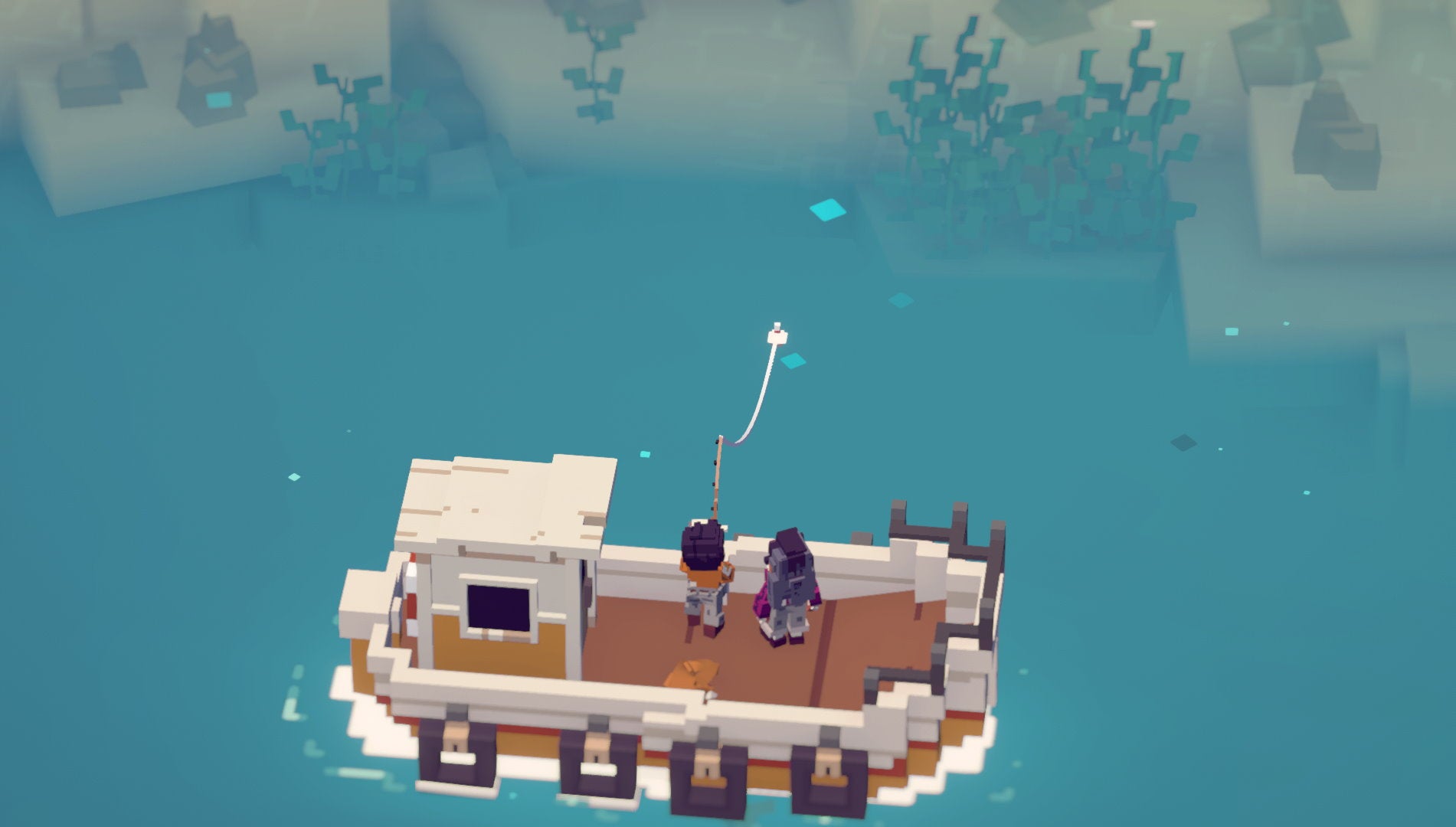
But you have your boat, and you have a rod. You might be an accountant, but you can learn how to fish. It’s not too difficult mechanically, just requiring a little timing to pull in the right direction. Which is good because you’re going to be doing a lot of it. There are different bait and lure types, but the game strikes a good balance, not requiring a lot of memorisation of what you can catch where and how. Any information you gather will be collected into your pretty illustrated notebook for future reference, but there are also so many kinds of fish so widely available that you’re likely to run into new and exciting things just by experimenting. You can also cast a net to scoop up many small fish at once, or drop a lobster pot and see what crawls in.
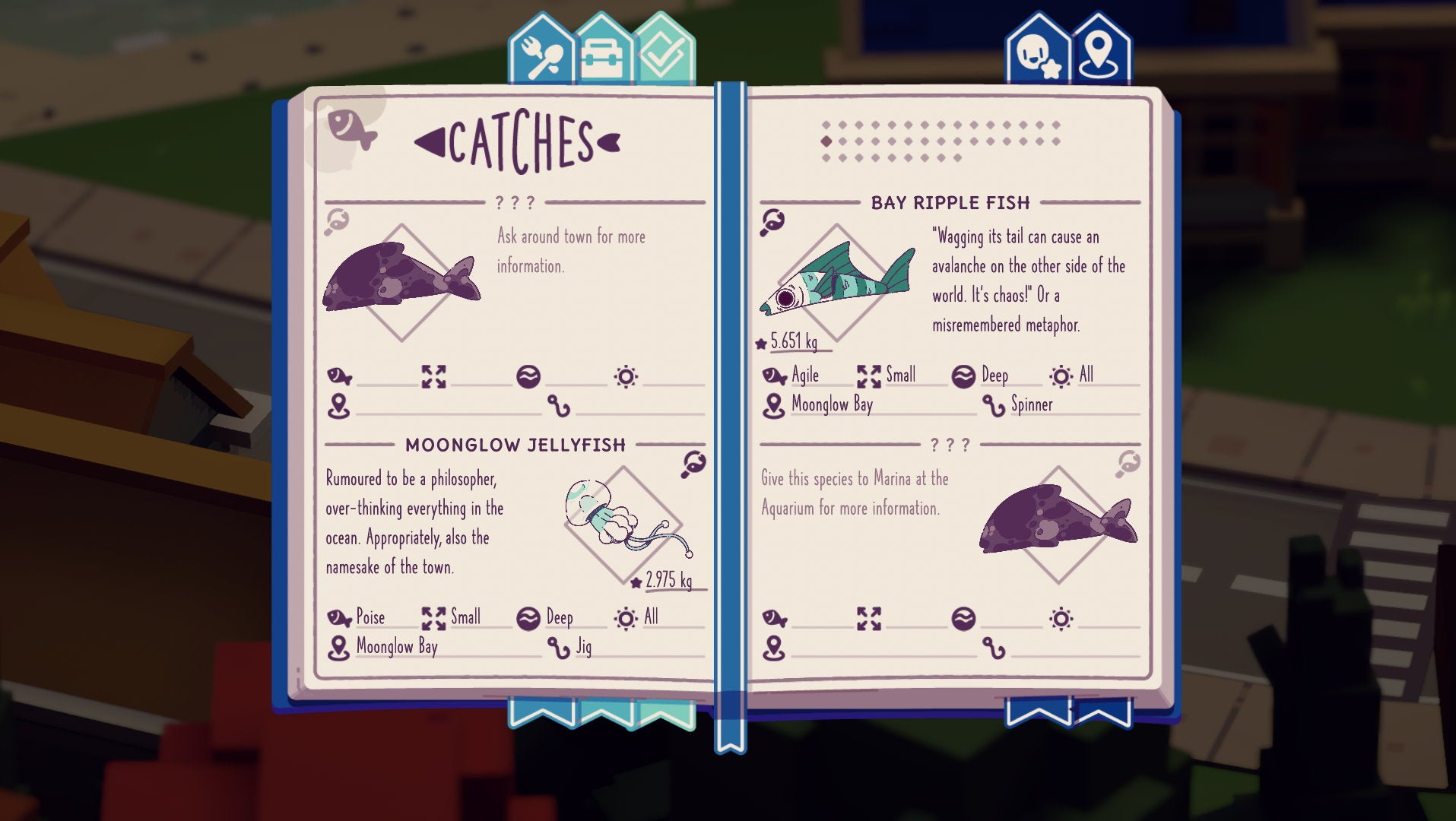
When you’re not at sea, you’ll be spending a lot of time in the kitchen. Whipping up various dishes involves walking through a small set of challenges that blur the line between complex QTEs and simple mini-games. This is the weaker of the two main elements of the game. Recipes are harder to come by than new fish, so the cooking sometimes begins to feel samey, and the dishes just aren’t as interesting as the promise of pulling up a new colourful and charming fish design.
Fishing and cooking is crucial for making money, which in turn is crucial for bringing the bay back to life. There is a third element: talking to, doing fetch quests for, and befriending the locals, but this is more of a side dish. The story focuses on the town and exploring the surrounding areas, gated by quests like restoring a certain civic building or making sure that the aquarium is well stocked with unique fish to draw in tourists. (This is perhaps why, despite not befriending many of the locals, I still have a soft spot for the Blathers-like aquarium director).
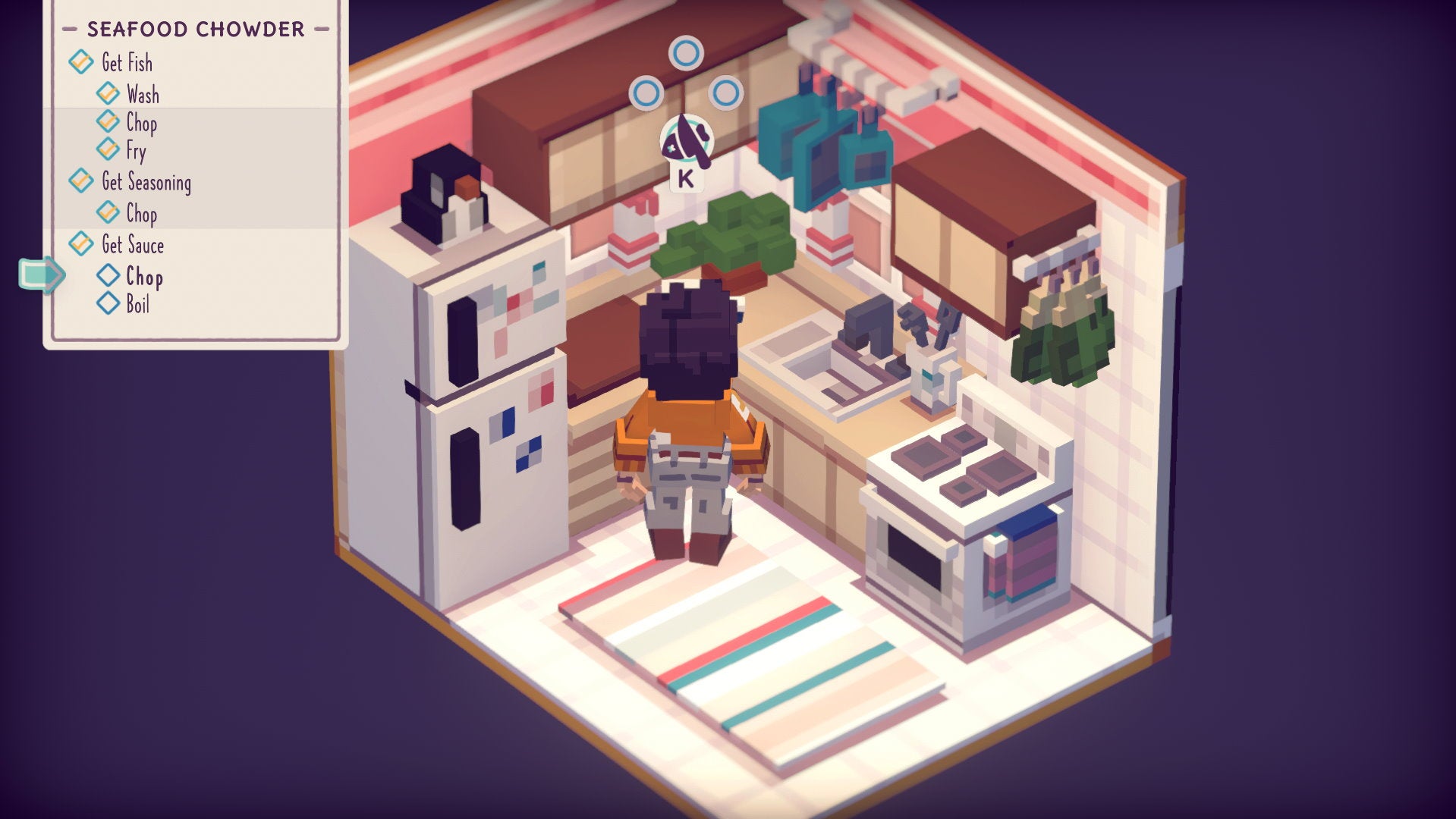
In order to restore the bay, however, you also need to get to the bottom of its mysteries. The townsfolk are convinced that the sea is full of dangerous creatures, and will share these myths with you at any given opportunity. As it turns out, they’re not half-wrong. Moonglow Bay is actually full of weird and wonderful fish, from a square-bodied little guy just named “Dave” to the bosses scattered around the waters.
The visual designs of these bosses and their associated narratives are usually wonderful, but the way Moonglow applies its usual mechanics to them can be hit or miss. It doesn’t help that the controls (on PC, at least) never came to feel fully intuitive for me. For example, in most cases K is the main ‘interact’ key. But on the boat, pressing K just enters the cabin (which I did almost every time I wanted to go somewhere), and it’s L to drive. Usually it’s not a problem thanks to Moonglow Bay’s chill tempo, but these counterintuitive moments make for needless extra fuss all the same.
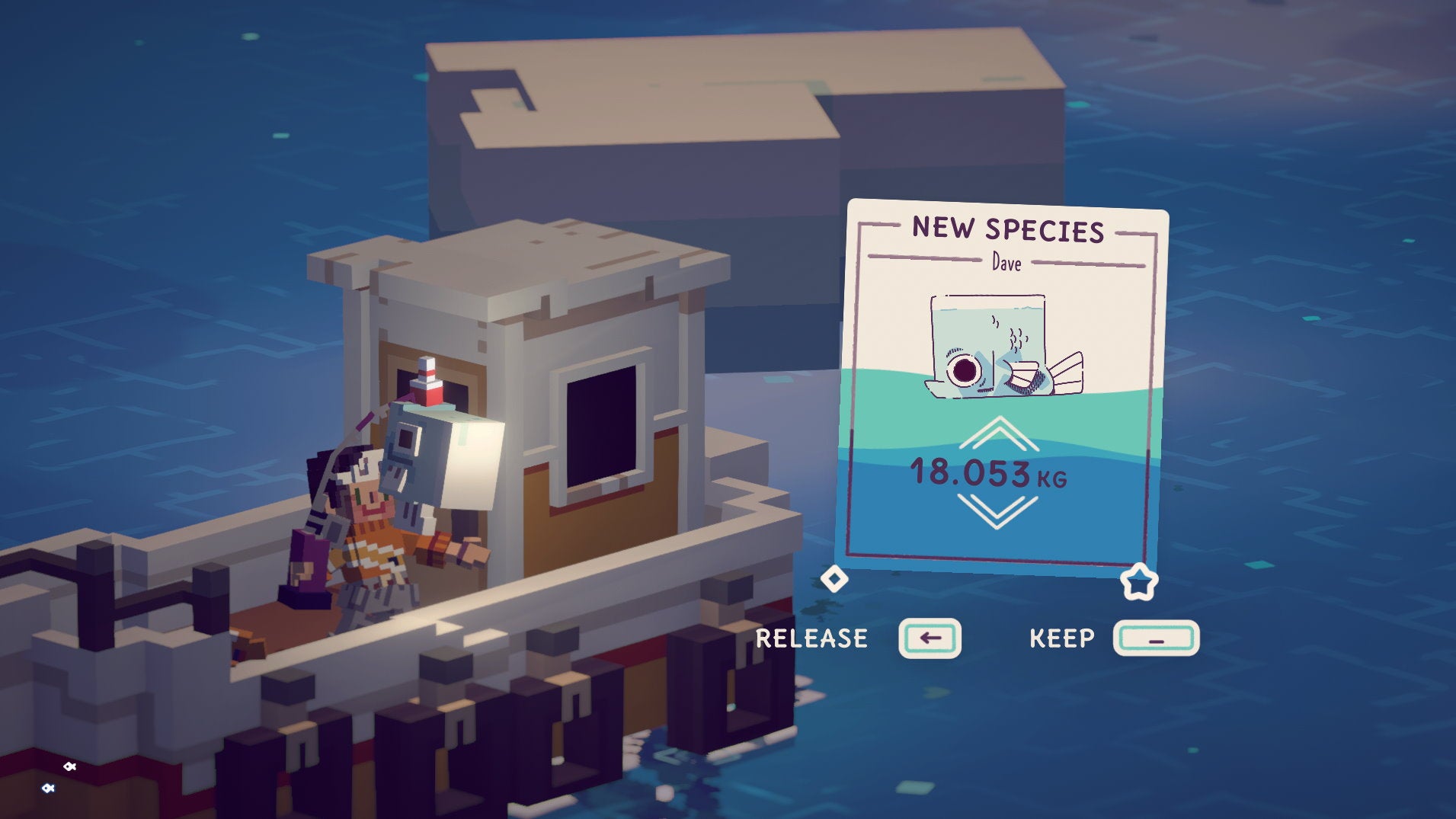
However, there’s one boss fight that involves a timed puzzle that only causes stress. Nor is it the only example. For another boss, the hitboxes felt slightly off throughout. Not such a big deal when throwing a net towards fleas on the beach requires you to look away from them, but it becomes problematic when the game makes you think that you can’t open a door when you have actually completed its associated puzzle correctly.
But these small frustrations are soon forgotten. The game’s story keeps unravelling towards a genuinely tearjerking ending, digging into its themes of community, resilience, and rebuilding in surprising and consistently interesting ways. It keeps a steady, compelling rhythm, switching between the normal fishing and cooking to something more dramatic and then back again. And watching the town slowly come back to life, not despite setbacks but building on what they leave behind, is beautiful.
Just one more thing: Muffin is a cute dog, but I wish I could adopt one of the seals from the northern areas. Give Fisher a real fishing assistant.
